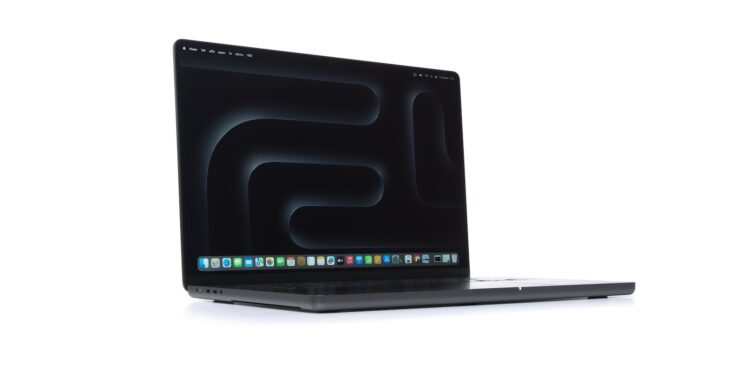A new leak from an internal iOS 18 release is attracting attention: Apple has apparently been testing MacBook Pro models with the powerful M3 Ultra chip. This information comes from test files found on a prototype of the iPhone 16. Code names emerged that point to previously unreleased variants of the MacBook Pro. While it's not uncommon for companies like Apple to test various hardware configurations internally, it's interesting to note that the M3 Ultra has so far only been used in stationary devices like the Mac Studio. The fact that it has now also been tested in a notebook raises interesting questions about the company's product strategy.
If you know Apple, you know that the company is always working on hardware iterations that remain hidden from the public. The M-series chips have redefined the performance limits of mobile computers in recent years. With the M3 Ultra, Apple is reaching a new level of computing power – but so far only in desktop systems. The idea of testing this chip in a MacBook Pro is not far-fetched. The new leak sheds light on this development work.
Notes in iOS 18: Codename J514d and J516d
The leak originated from a user of the Chinese platform BiliBili , who had access to an internal version of iOS 18. This version was running on a prototype of the iPhone 16. In a directory containing diagnostic and test files ("/AppleInternal/Diags/Tests/"), the user came across two code names: J514d and J516d. What's special about them: J514 and J516 are the known designations for the current 14- and 16-inch MacBook Pro models with M3 Pro and M3 Max chips, which Apple introduced in October 2023. The appended "d" indicates an alternative configuration—most likely one with the M3 Ultra chip.
- For comparison: The Mac Studio with M3 Ultra is codenamed J575d. The similarity in the naming supports the assumption that the J514d and J516d are MacBook Pro variants with M3 Ultra.
Why no MacBook Pro with M3 Ultra was released
Despite these hints, Apple has yet to introduce a MacBook Pro with an Ultra chip. Technically, it would be a challenge: The M3 Ultra features up to 32 CPU cores, up to 80 GPU cores, and supports a maximum of 512 GB of RAM. These specifications are ideal for stationary systems, but place high demands on cooling and power supply in the mobile sector.
- For comparison, the current MacBook Pro with the M4 Max has up to 16 CPU cores, 40 GPU cores, and 128 GB of RAM. Apple may have decided against the Ultra version because it would have required compromises in battery life and thermal performance in the notebook format.
What the leak reveals about Apple's strategy
The leak shows that Apple is testing various hardware combinations, even if they don't ultimately make it to market. The tests with the M3 Ultra in the MacBook Pro demonstrate that Apple is exploring the limits of mobile performance systems. At the same time, it demonstrates a focus on striking a balance between performance, efficiency, and user experience.
Leak from iOS 18: Apple experimented with M3 Ultra
The M3 Ultra chip remains reserved for the Mac Studio for now. However, the hints from iOS 18 leave no doubt that Apple also considered a version of the MacBook Pro with this high-end chip. The decision not to release it is likely based on technical realities. For you as a user, it shows: Apple tests far more than ultimately makes it to market. And who knows – perhaps a MacBook Pro with an Ultra chip will still be possible in the future. (Image: Shutterstock / 19 STUDIO)
- M4 MacBook Air: Now it's worth switching from the MacBook Pro
- AirPods: These are the upgrades Apple is planning for the next few years
- MacBook Pro 2026: Apple plans the biggest upgrade yet





